In a keynote interview Tuesday at Mingtiandi’s Hong Kong Focus Forum, PAG co-founder and chairman Weijian Shan held the house rapt with his tale of helping lead the only takeover of a mainland Chinese bank by a foreign company.
The one-of-a-kind feat is the subject of Shan’s recently published third book, Money Machine: A Trailblazing American Venture in China. He shared stories from that escapade and others with Mingtiandi’s Michael Cole and attendees of the all-day event, sponsored by Yardi, at the Sheraton Hong Kong Hotel and Towers.
The mainland native opened with a brief explanation of how he made the unusual journey from academic to banker to Hong Kong private equity boss.
“I used to be a professor at the Wharton School, then I was approached by JP Morgan,” Shan said. “They made me an offer, I looked at the offer and I said, wow, these guys pay so much money. Even though our students go to Wall Street, I never knew that the students made so much more than their professors.”
Cash-Printing Licence
Shan spoke of how the Asian financial crisis compelled him to switch from sell side to buy side and ditch investment banking for private capital.

PAG chairman Weijian Shan at the Hong Kong forum
“On October 23, 1997, I was in Times Square of Hong Kong in Causeway Bay, and I saw a crowd of people looking at a big TV screen,” he said. The breaking news was that the Hang Seng stock index had tumbled more than 10 percent that day, and the crash persuaded Shan to accept a standing offer to join Newbridge Capital.
In 2004, Shan and his team at Newbridge (now part of TPG) led the American private equity firm in buying a controlling stake in Shenzhen Development Bank from entities belonging to the city government. Drawing on lessons from Newbridge’s 1999 acquisition of Korea First Bank, Shan had seen an opportunity to make a similar if somewhat dicier bet on SDB.
“We were confident only in one thing: our ability to control risks,” he said. “In China, banking at that time was like a licence to print money. Why was that the case? Because interest rates were controlled by the central bank.”
A state-imposed floor on lending rates and upper limit on deposit rates yielded “exceedingly high” spreads of 3 or 4 percent, compared with about 1 percent in Hong Kong at the time. After recruiting American finance veteran Frank Newman to bring steady leadership and a winning culture to SDB, Newbridge exited in 2010 at 14 times its initial investment.
Lightning in a Bottle
For Shan, who spent his teenage years doing hard labour in the Gobi desert during China’s Cultural Revolution, fixing up and later selling a national-level bank was just one in a series of successful turnarounds, including on a personal level.
In 1980, Shan earned one of just 1,862 scholarships awarded in China for students to study abroad. “I checked some other statistics. About that time, about 3,000 to 4,000 Chinese died from lightning every year,” he said. “You would have twice as much a chance to be struck by lightning at that time than to qualify to study abroad.”
Rather than great good fortune, Shan put it down to his perseverance and the seizing of every opportunity to educate himself with books during those dire days in the Gobi. He credited an old friend with giving a piece of advice that became a lifelong mantra: “Wasting time is committing a sin against yourself.”
No Slowing Down
Since joining PAG in 2010, Shan has helped build the pan-Asian private equity player into a multi-sector investor managing real assets, private equity and credit strategies with over $50 billion in assets under management.
Under his leadership, PAG has been one of Asia’s most active real estate investors, operating both a core-plus/value-add and an opportunistic strategy.
In January this year, PAG teamed up with Singapore’s Mapletree Investments to buy Hong Kong’s Goldin Financial Global Centre for $713 million. Last December, the firm’s Flow Digital Infrastructure venture broke ground on a data centre in the Philippines.

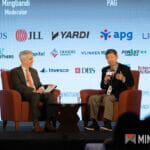
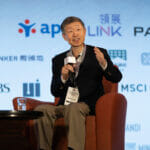

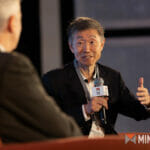

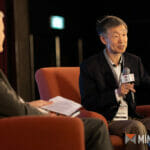
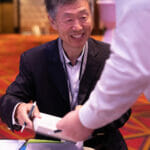
Leave a Reply